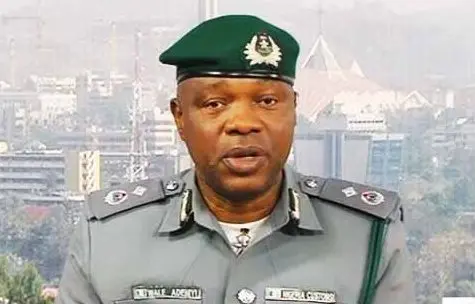The acting Comptroller General of the Nigeria Customs Service, Wale Adeniyi, has said, that contrary to insinuations, not all land borders shut by the Federal Government across Nigeria in 2018 have been reopened.
He pointed out that only six strategic land borders were reopened in 2021 on the orders of former President Muhammadu Buhari.
Adeniyi stated this on Tuesday after a private meeting with the President Bola Tinubu at Aso Villa in Abuja.
The Customs boss told State House correspondents that there are ongoing processes to review the situation and the quest to achieve border security and regional integration.
He noted, however, that the reopening of the borders will be made public.
Read Also: Customs Chief Pledges Priority On Easing Port Congestion
Adeniyi lamented the challenge of fuel smuggling across the borders, saying that the removal of petrol subsidy and the attendant increase in the price of fuel will disincentivise fuel smugglers in the long run.
He states that with new policies by the government, the persistent challenge of smuggling of the vital commodity will diminish.
According to the Customs boss, his discussion with the President also centered on advancing user-friendly ports, exports as well as ensuring 48-hour clearance of goods around the ports.
In another report, the Federal Government of Nigeria had on Monday disclosed that it has concluded plans to ensure the harmonisaion of all revenue-collecting agencies in the country in its resolve to boost revenue generation in the country.
Mr. Zach Adedeji who is the Special Adviser to President Bola Tinubu on Revenue, made this known on Channels Television’s Politics Today programme on Monday.
Adedeji pointed out that the government will double the country’s total annual revenue which is currently below N15trn by deepening the nation’s revenue collection system and not by adding extra taxes.
According to the President’s revenue chief, Nigeria has a revenue problem but the current administration is prepared to tackle the challenge through fiscal discipline and harmonisation of revenue channels using technology to view all government revenue-collecting agencies in realtime.

